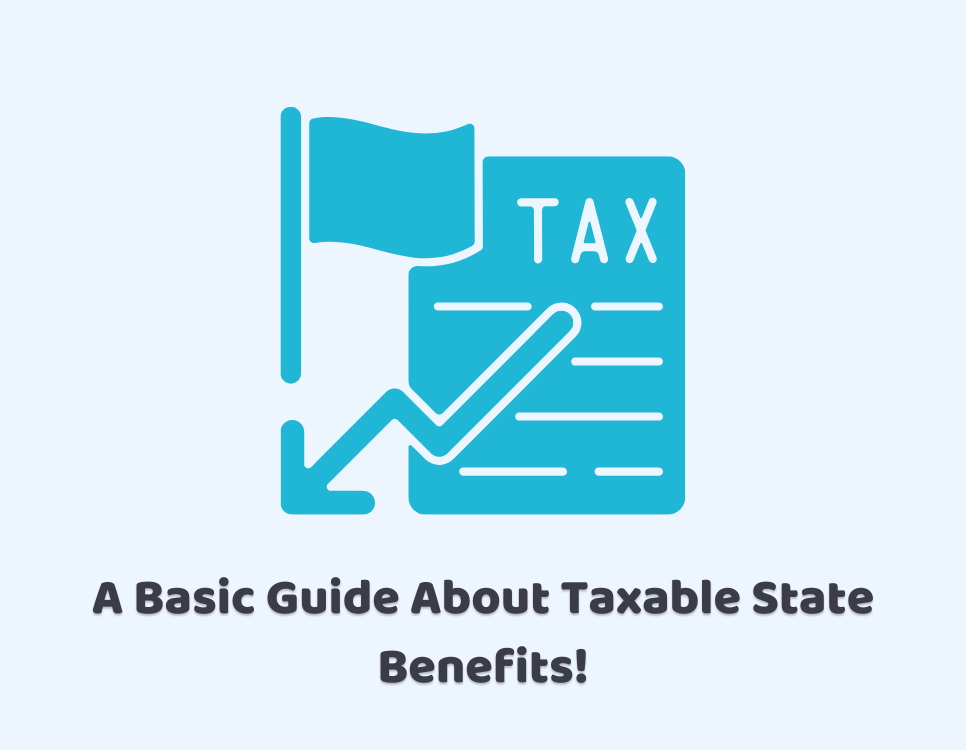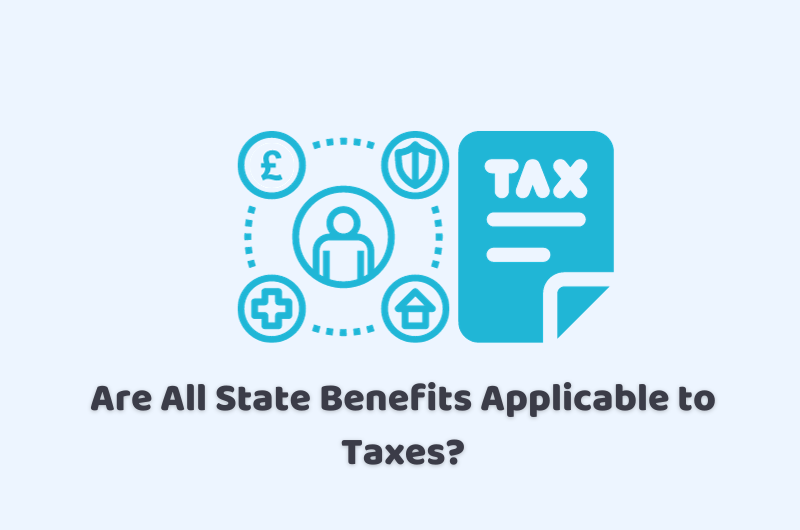
26/07/2022Tax Issues , Tax Saving Tips
People are often confused about the way tax is paid when it comes to taxable state benefits. We all know that it is a little complicated tax affair to understand well. If you are among such a group of people, we are here to help. In the case you are lucky enough to get the state benefits, it is mandatory to be aware of the relevant facts about it and they are important. Be aware of the information that even if the state benefits are taxable, there is no amount of tax that will be taken off at the source.
One of the reasons that may be the relevant person is below the threshold and is not eligible to pay the tax according to tax rules. On the other hand, when other sources of taxable income like your main employment source are considered too. In such a scenario when you are getting the state benefits and your threshold goes above the limit, you have to pay the tax on your taxable income. We have covered the basic details for you to develop an understanding of taxable state benefits and how to inform HMRC about it.
Reach out to one of our experts to know more about the taxable state benefits. Call us on 02086868876 or email us today. We will offer instant help!
How to Understand what Are Taxable State Benefits?
It might sound surprising to many of you that a few of the state benefits are taxable for sure. The state pension is one fine example of taxable state benefits. However, you need to be well aware of the list of state benefits that are taxable and non-taxable to avoid any overpaid tax and other mistakes. A few examples listed below for you can be taxable only when you have paid based onset of the national insurance contributions.
- Allowance of Jobseekers (JSA)
- Employment and Support Allowance (ESA)
Moreover, there are chances for the same state benefits to be non-taxable if there is any involvement of means tested. Your financial situation matters here a lot. You need to keep a vigilant eye on the receipt of the state benefits because this can affect your ability to claim universal credit or tax credits. If you still seek further about it, GOV.UK provides a wide range of informative discussions about it. You can gather accurate knowledge about the specific benefit that you are associated with.
This is an integral part as it will keep you protected from the overpayments of tax and your ability to claim the refund in case you need it.
How To Let HMRC Know whether I am Getting the Taxable State Benefits or Not?
It is the responsibility of DWP which is a department of work and pension to be in touch with HMRC to let them know about state benefits every individual is getting. We will take an example of daily updates that the department of work and pension is liable to communicate to HMRC that explains they are starting pension for a particular individual. This includes the details of the payable amount of money and the required date to pay it.
They can even advise the changes that have to be made in the amount of pension. The system of giving advice is slightly different when it comes to annual increments. However, the advisable words are to reach HMRC in advance to make the required changes before the payments are calculated. The system works in the same way in the case of JSA and ESA.
Moreover, know that the other state benefits in the list are not following such a smooth system. Therefore, it is advisable to get in touch with HMRC when you are getting any other taxable state benefits. This will avoid any uncertainty about your tax bills. Your national insurance number has to be correct to keep everything going smoothly. This will ensure that other records are linked promptly.
How Are State Benefits Taxed In The UK – JSA and ESA?
The set of rules is very special when it comes to the state benefits like JSA and ESA. The popular state benefit that is taxable is considered to be the state pension. This is important to state that PAYE is not even operated on state pension by the department of work and pension.
In case an individual has more sources to gain income and the payment is made through PAYE, HMRC tends to collect the due tax on the taxable state benefits. The code that your pension provider or the employer uses will be changed. The state benefits you are getting will not come under the coding notice automatically. So you are liable to speak to HMRC about it. The following points are important in the process:
- It is not an easy task for even HMRC to ensure that all the tax amount is collected using your PAYE code.
- In other ways, the simple assessment is issued by HMRC to collect the due tax.
- You can be required to complete the self-assessment tax return for this purpose as well.
- The collection of the due tax is considered a part of the calculation self-assessment.
The Bottom Line
Now that you have gathered the required information about the taxable state benefits, we can bring the discussion toward wrapping up. There is no doubt that the process of ensuring the due tax is collected and the taxable state benefits is a complicated task. However, if the advisable instructions are followed religiously by all the individuals getting the state benefits, it will be a lot easier for HMRC to complete the process. We hope the gathered information has helped you to develop a better understanding.
Are you stuck with your tax affairs? Why don’t you speak to our young and clever team members and get your queries answered quickly? Call us on 02086868876 or email us today.
Disclaimer: The information about the taxable state benefits provided in this blog includes text and graphics in general. It does not intend to disregard any of the professional advice.


